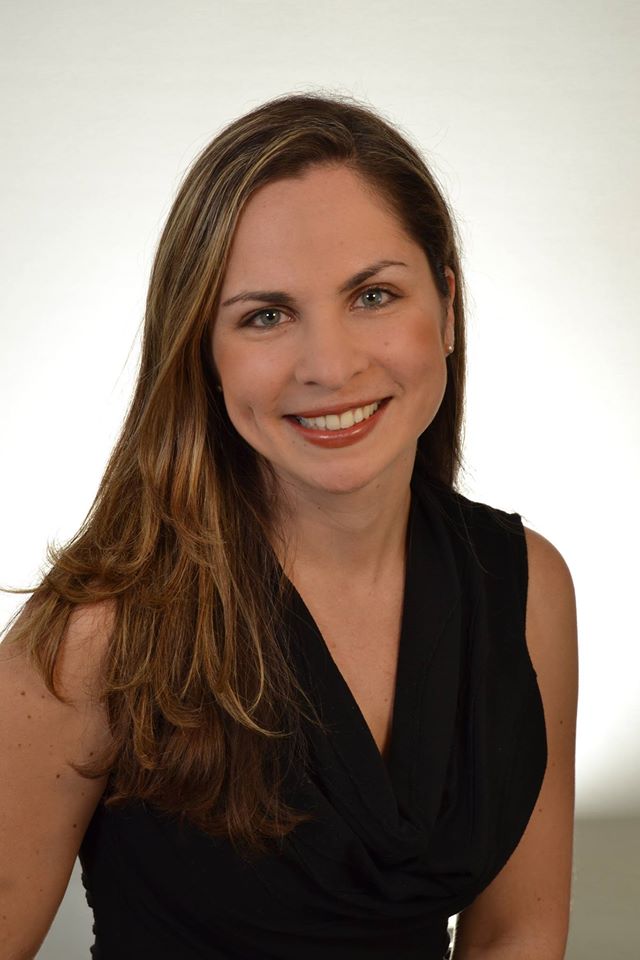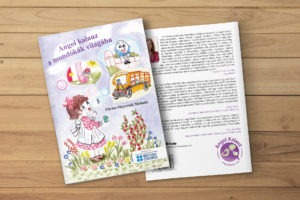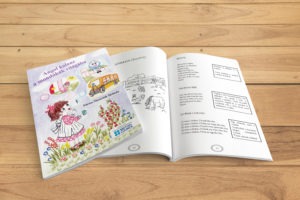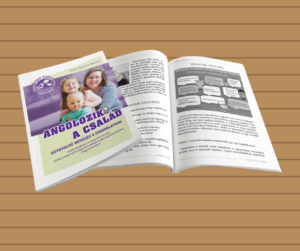[et_pb_section fb_built=”1″ fullwidth=”on” _builder_version=”3.22″ global_colors_info=”{}”][et_pb_fullwidth_post_title meta=”off” featured_image=”off” text_color=”light” _builder_version=”3.3.1″ background_color=”#821eb2″ text_orientation=”center” custom_margin=”0px||0px|” custom_padding=”||56px|” saved_tabs=”all” global_colors_info=”{}”][/et_pb_fullwidth_post_title][/et_pb_section][et_pb_section fb_built=”1″ _builder_version=”3.22″ global_colors_info=”{}”][et_pb_row column_structure=”2_3,1_3″ _builder_version=”3.25″ background_size=”initial” background_position=”top_left” background_repeat=”repeat” global_colors_info=”{}”][et_pb_column type=”2_3″ _builder_version=”3.25″ custom_padding=”|||” global_colors_info=”{}” custom_padding__hover=”|||”][et_pb_text _builder_version=”3.27.4″ background_size=”initial” background_position=”top_left” background_repeat=”repeat” global_colors_info=”{}”]
Korábban bemutattam már Nektek a blogon kétnyelvűséggel foglalkozó külföldi oldalakat, hogy kicsit más oldalról is megismerhessük a témát, hogy külföldön mások hogyan állnak a kérdéshez, hogyan menedzselik a nyelveket. (Ezeket az interjúkat a Kétnyelvűség kategória alatt megtaláljátok.)
Ebben a bejegyzésben szeretném nektek bemutatni Marianna Du Bosq-ot, aki két gyermek édesanyja, a Bilingual Avenue oldal szerkesztője. Ő maga Venezuelában született, jelenleg Amerikában élnek családjukkal, így spanyolul és angolul nevelik gyermekeiket.
Fogadjátok szeretettel a vele készült interjú írott változatát.

- Please tell me about yourself, where do you live, what do you do, how many children do you have?
So, my name is Marianna du Bosq, I am originally from Caracas, Venezuela and I currently live in the United States just outside of Washington D.C. And I’ve got two children. My daughter is three and my son is about to turn one in just a few days.
- What languages do and your husband speak? How do you learn these languages?
I speak exclusively to the children in Spanish and my husband speaks exclusively to them in English, so we practice the one person one language stragegy: OPOL. My husband and I speak English to each other but even when my husband’s in the room I stick to speaking Spanish with the kids. Now my daughter I’ve told her that the little baby only speak Spanish. So she right now is only speaking Spanish to him as well.
I did learn the languages well I was raied in Venezuela. So I was a monolingual Spanish speaker and then I moved to the United States just before my thirteenth birthday. So in my new classroom I had to speak only in English. And so I had a lot of exposure from the classroom and a lot of need to learn it. I learned between my eighth grade in ninth grade of high school is where I learned in. And then all my schooling since I moved to United States being in English so I still speak to my parents Spanish my kids in Spanish. So that’s how me able to keep up with both languages. So I’ve already said how my children are so little bit of information about them.
- How old are your children? Could you say some info about them?
My daughter’s three she’s about turn four when we lived in Germany. She was also getting exposure in German in her school but unfortunately we don’t have a lot of German speakers around us and I’m already focused on Spanish. So right now really Spanish and English are her main languages. She’s a really sweet little girl, very creative to read which is a real treat for me because books is one of the biggest ways in which I can provide both kids with extra words.
My son is about to turn one. So right now he has his first word shish is Dad doubt. And he understands a lot of words but that right now is the only work he’s produced he can sign more when he eating with sign language will have his hands. He wants more and more food but that’s about the extent of his a carrier he’s a really easy going baby generally really happy to have been just a great addition to our family.

- What is the main language that you speak at home?
With my children I do Spanish and my husband he does English. My husband and I do speak English to each other so the kids who pick up of English passively but they know the expectation is to speak Spanish to me at all times. My daughter’s pretty good about sticking to Spanish with me.
- Why did you start raising your children bilingually?
Well it’s really important for me that I pass on my culture and the Spanish was a great way for that. The family still lives in Venezuela and I wanted her to be able to communicate with them and have a connection. There’s also so many wonderful benefits from bilingualism.
For example there is research showing that it can delay the onset of Alzheimer’s by over four years whish is freely create anything that we can do for our healt.
I’m all for and it also means for really important things for me there’s been connections to bilingualism and the ability for an individual to feel empathy for others. Because as a bilingual person you’ve been in situations where you maybe don’t fit in 100 % or you know that you have some limitations because you may or may not speak the language you understand the limitations that someone else may have. So empathy for others is a really neat benefit. And also allows for children to grow up a little bit more glboally and open-minded, because you know that there’s a whole world out ther that speaks not just your language but others. So being able to teach my children that from a really early age was very important for me. It also will open many doors for them. They can travel, they can study in other settings and so all those things are really appealing. I also wanted to be able to pass on some of the things I had learned as a child in Spanish for my kids. For example Spanish music, Spanish ballads are so amazing and you can’t wait get the same sense when they’re being translated. I want my children to be able access those they to the new language would be a way to do that.
- How do you manage the languages?
So, I get the one person-one language strategy. My daughter does go to school all day in English. That’s tough. She gets a lot of exposure in the community language. She does have one teacher in her classroom that speaks Spanish so she’s kind of my team member. I maximize exposure when we’re outside of the classroom. I set up play dates in Spanish, try to get her interact with other Spanish speakers. If she’s going to use technology for example it has to be in Spanish and I’m lucky that my husband’s really on board with that and he’s also very supportive of making sure that we’ve got resources so that we can and then date her daughter with more and more Spanish exposure and the same will become true with my little one. He’s just one right now, it’s a littly baby there’s only so much that we can do, like he doesn’t have any screen time for example because he’s just too young, but when the time comes we planned for that to also be in Spanish.
- What are the main points of raising a bilingual child?
So I’m not exactly sure what you mean here but I am assuming you mean like some of what are some of the steps or that you need to be taking when raising a bilingual child.
So, there are 3 things that are really like to point out for parents that are raising a bilingual child. The first thing is that your child needs to be exposed to vocabulary in order for them to be able to communicate in your target language they need to know the words in the target language. Now as your children get older, not only are they going to get more exploration the community language. So you have to work extra hard to provide an exposure. Well, their little brains are able to take in more and more and more vocabulary. So the challenge for parents is to continue to come up with creative ways to still make the target language exciting for their children. So, the first thing: exposure.
The second thing is they need to fell the need to use that language. So, just like adults. If they feel the need for example my daughter feels the need to speak to me in Spanish because I’m not goint to be answering her are not goint to be engaging with her unless she does so. So, she feels that need to speak to me. So parents have to work really hard to create that need. And if your children not answering you right now in the target language it’s because they dont’t feel the need to do so. You may need to create that need elsewhere so are there any hears are there only other people that speak that language. Can you make it so that they can only watch TV or play on an iPad or a tablet or a device if it’s going to be in a target language and the thing I really like to encourage parents is to select a game that your children are going to like but it has to be played in the target language. Your children will feel that need if they like the game, they will feel the need to speak in the target language and they will do so.
So that’s number two with about exposure and meet the third thing is keeping thins relevant. So what I mean here is when you’re teaching your children a new vocabulary make sure that it’s things that are relevant and of interest of them. Otherwise they’re not going to learn as quickly. When they’re older those words are going to change but those are the words that you need to be focusing on and teaching your children.
- Have you got any bad moments, feelings when your environment or relatives reprove your bilingual raising?
Well, we are pretty lucky that relatives in general have been really supportive and that even goes for my husband’s parents who only speak English. Every now and then they’ll ask for some clarific action when I’m speaking in Spanish but they are supportive. They know that this is important for me and they know that it will great benefits for my children so they are generally on board.
And bad moments you know there are times that my daughter. I know has learned a lot of English that they. Maybe just making that transition is a little bit tougher but I just keep in mind that she’s tired. We’ll talk about something that she likes. Maybe play easy activity in Spanish. I just keep reiminding myself that that it’s a marathon not a sprint and this is a long journey and I can’t drive myself crazy over the little things and I encourage parents to think about it along the same lines.
- What was your first success? Have you got any memorable moments?
The first thing that I have that I realized how my daughter gets a point not only is she just getting Spanish but she’s getting the concept of being bilingual we were pulling up to a restaurant. This was in Germany and we got out of the car and told my daughter OK we’re going to a restaurant in Spanish. She turned to her father and she translated what I said and and she said Daddy. We’re going to eat so that was really neat. She what that shows me is of course she’s understanding my Spanish. She can take the same concept and speak in multiple languages and she understands that my husband does not speak Spanish which is why she translated I’ll just never forget that I had just this huge smile on my face. I remember exactly where I was standing and I wish is a really great reminder that this is in fact very worth it.

- How do you see your children’s development in languages? Did they mix the languages? Most parents think that mixing the languages means bad, what do you think about this?
OK. So mixing languages is not bad. There are two things that are happening here. It could be either code switching or borrowing.
Code switching happens with two individuals that speak at least two languages and they’re jsut in a same sentence switching back and forth between words. This actually takes high linguistic competence because your brain is having to switch and switch back and forth between words. I do this all the time with my siblings. I would say we don’t speak English, we don’t speak Spanish, we speak Spanglish. We’re constantly swithing back and forth. It doesn’t mean that we can’t speak Spanish. Well, doesn’t mean we can’t speak English. Issues that we know that the other person speaks both languages and we just kind of choose whatever word we want. So, it’s not a bad thing and it’s not something I would do with my parents for example. I only speak to him in Spanish or with someone who doesn’t speak English. I would stick to Spanish. I only do with my siblings because I know that they speak both and it just feel natural.
Another way that mixing comes into play is called borrowing. So essentially what that means here is if your child is speaking let’s say Spanish and they don’t know a word in Spanish and they borrowed that word from English language. Maybe the child doesn’t know how to say cereal in Spanish, they borrowd it from English. So what that lets you know is if you see borrowing that just means your child doesn’t know that word in your target language so teach it to them. It’s actually a great indicator of what they do understand and what they don’t.
- Have you got any difficulties (e.g. your child refuse the language), what was it and how do you solve this?
So, my daughter – I’m pretty lucky she hasn’t really refused the language. I did feel like when she was 3 years old she did start testing some boundaries and her new little brother had come home. There were a lot of changes and I think she was trying to sort of find her place in the family. And she did try a little bit of English and just stayed for him and held the high expectations I continued to speak in Spanish and reminded her. Speak Spanish and providing her exposure and keeping the Spanish fun. Typically when a child is refusing to speak the languages whet that means is that they are either nnot getting enough exposure. So we need to teach them more vocabularies or they don’t feel that need to speak the target language so I encourage parents to kind of check maybe it’s one. Maybe it’sb oth. But you need to kind of reassess you have to keep those conditions of exposure and need really friend of mine that will guide you. That will let you know when you need to increase one or the other and that’s what’s going to help you to raise bilingual children.
- What can you recommend the parents who are non-native speakers? Which one of your podcasts deal about it?
One thing is to be gentle on yourself you’re already doing something amazing. So just remember that progress is more important. You may not get it right every time but just try again the next day and your children are already going to be at greater advantage from their peers. So does it have to be perfect just do what you can. The second thing that I like to encourage non-native speakers is that if you find yourself switching, so let’s say you really want to stick to Englihs but you find yourself switching into Hungarian at the end of the day just coming jot down. Where were the times when you switch from one language to the other. And so probably it was because you didn’t know how to say those words in English. So, what you do is you look them up.
Podcast:
110. Tips to non-native speakers
111. Non-native bilingual parenting
- What was the main aim to start writing a blog? When do you start? What can we find on your blog?
So, the blog and podcast started on October, 2014. I started because as I was getting ready to raisy my own daughter bilingually.
The thing I kept seeing is that many bilingual families felt completely alone on their language journey. I thought if there’s anything I can do to help and motivate families I should do so. I have a master’s in curruculum and instruction I spent many years teaching dual language learners. So I feel very confident with my ability to do so and I thought maybe i should share what I know and the inspiration that I have with other parents and help them and that’s what let me to lead the blog so there are blogs and podcastst that are released every single week on the podcast episodes. I interview experts in the field of bilingualism, I interview parents who are raising little children. I host consulting calls with members from inside the bilingual new member’s club. And we go over 3 questions that they haven’T really personalize the call as and that podcast and interviews to help them take things the next level. And then also answer questions originally that were just questions from anyone but now their focus on questions from members inside the community.
- How can your blog, the podcasts, and your community help parents?
Well, it’s full of tips and strategies so that you don’t have to search the web forever I kind of already break that information for you. So you can kind of get a doze of inspiration to help you out. It’s goint to keep you motivated because I’m constantly interviewing other parents were doing the same thing. Through the podcast you can hear other families that are likely having the same challenges that you may be having as you and you can get ideas, motivations and really figure out how to make the whole bilingualism journey work for you in your home. It’s also because it’s published every week. It’s just a reminder of OK, let me get inspired, let me do this let’s keep going.
- What can you offer the parents who are members of your Club? Can you say some information about this Club?
So the member’s club is part merely focus for families who are raising children English and Spanish although it’s open for anyone. And so on the forum, there are training courses with more information on what you can do to help bilingual your mother will children. We also develop and this is one of my favourite thing – a language paln so that families can really take the vision that they have for their children and break that down by setting goals and coming up with a plan, so that they can achieve those goals for their children. It’s probably one of my favourite things I’ve seen some really amazing results come out from a language plan and then we have live calls once a month where we have a speaker or myself teachin the corners having a conversations with the members. And the members can ask their own questions and then we have a forum where members can ask any questions.
I’m in the form every single day giving feedback and guiding the members along the way.:
www.bilingualavenue.com
- What do you recommend the parents who are hesitating and don’t know how to start?
What I really recommend for parents is to think about in a perfect world what would you like your children to be able to achieve on their language journey. So is that the one to just be able to read or speak your language and you wanted to be able to read and write it because those are going to take a very different paths. So if you don’t have a vision, you won’t necessarily know what’s steps you need to take to get to that vision. So first thing have a vision then set some goals as how you’re going to help your children achieve and come up with a plan. So you know how to execute that vision and ultimately surround yourself with the communitiy people wo are goint to motivate you and keep you going. So that when you come up with obstacles in the language, during you have the community in this team of people who are goint to boost you and help you going forward. So hopefully, that’s helpful.
Thank you!
Thank you very much for the interview, Marianna! Keep going on your great mission!
Marianna blogját itt találjátok:

Vidám angolozást kívánok!
Melinda, Míra & Balázs
[/et_pb_text][/et_pb_column][et_pb_column type=”1_3″ _builder_version=”3.25″ custom_padding=”|||” global_colors_info=”{}” custom_padding__hover=”|||”][et_pb_team_member name=”Fürész-Mayernik Melinda” position=”Angol Kalauz program alapítója” image_url=”https://angolkalauz.hu/wp-content/uploads/2018/08/20180305_Melinda_091-min.jpg” _builder_version=”3.3.1″ saved_tabs=”all” global_colors_info=”{}”]Az Angol Kalauz – Kisgyermekkori angol nyelvi nevelési program alapítója, a módszertan kidolgozója és az angolkalauz.hu cikkeinek és oktatóanyagainak szerzője Fürész-Mayernik Melinda. Két kisgyermekét neveli magyarul és angolul, a játékos angol nyelvi fejlesztéshez nyújt segédanyagokat kisgyermekes szülőknek és pedagógusoknak. 2008 óta foglalkozik gyerekekkel (matemaitka-angol szakos tanító), szakértői cikkeit megtalálod szülőknek és pedagógusoknak szánt online és print magazinokban, találkozhattál a nevével rádióban és televízióban is. Programját az ország több óvodájában alkalmazzák, foglalkozásvezetői erősítik a csapatot, melynek küldetése, hogy a gyerekek megtapasztalhassák a játszva angolozás élményét, hogy később szívesen és gátlások nélkül beszéljenek angolul. Módszertani-gyakorlati könyveit az ország több óvó- és tanítóképzőjén ajánlott kiadványként tartják számon.
[/et_pb_team_member][et_pb_text _builder_version=”3.27.4″ saved_tabs=”all” global_colors_info=”{}”]
Keresd a játékos angolozáshoz, kétnyelvű neveléshez kapcsolódó napi tippeket a Facebook oldalon is:
www.facebook.com/angolkalauz
[/et_pb_text][et_pb_text _builder_version=”3.27.4″ saved_tabs=”all” global_colors_info=”{}”]Mondókázz gyermekeddel angolul!
Az Angol kalauz a mondókák világába című könyv segít! Több, mint 300 angol nyelvű mondóka és gyermekdal az eljátszásukhoz szükséges magyar nyelvű gyakorlati tanácsokkal! A British Council Családi angol programja és Vida Ágnes (Kismamablog) ajánlásával!


[/et_pb_text][et_pb_text _builder_version=”3.27.4″ global_colors_info=”{}”]
Exkluzív támogatás: Hogy soha ne érezd magad egyedül a kétnyelvű nevelésben, játékos angolozásban!
AZ ANGOL KALAUZ KLUBTAGSÁG ABBAN SEGÍT, HOGY GYERMEKE(I)D JÁTSZI KÖNNYEDSÉGGEL MÉGIS HATÉKONYAN, AZONNAL HASZNÁLHATÓ ÉS KIPRÓBÁLT SEGÉDANYAGOKKAL NEVELHESD KÉTNYELVŰEN!

[/et_pb_text][et_pb_text _builder_version=”3.27.4″ saved_tabs=”all” global_colors_info=”{}”]
Angolozik a család – Kétnyelvű nevelés a gyakorlatban
Szülői kézikönyv a kétnyelvű nevelés, játékos angol nyelvi fejlesztés gyakorlati megvalósításához Magyarországon
Legyen az otthoni angolozás, kétnyelvű nevelés élmény, közös családi program, mellyel hatalmas lehetőséget adsz gyermekednek, hogy az angol nyelvet szívesen és jól beszélje!


[/et_pb_text][/et_pb_column][/et_pb_row][/et_pb_section]